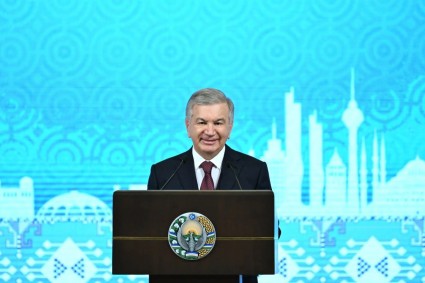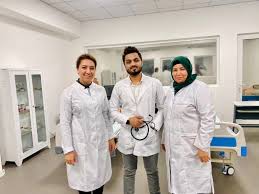On July 18, the multimedia exhibition Jadids. Letters to Turkestan, dedicated to the education initiatives of the Jadids, the press service of the Foundation for Development of Culture and Art said.
The exhibition on 1,400 sqm unveils the history of students from Turkestan who departed for Germany to study.
“Jadidism, as a significant socio-political and cultural modernist movement of the early 20th century, played a key role in the development of Central Asia,” said Presidential Aide Saida Mirziyoyeva. — Jadidism became a catalyst for many important changes in the region that continue to influence society today. This chapter of history demonstrates how the pursuit of knowledge and progress can change society, help overcome obstacles and create the foundation for a brighter future.”
The exhibition features several sections, which are accompanied by visual and audio installations in Uzbek, Russian and English, allowing visitors to immerse themselves in the past through archival materials collected by Bahrom Irzaev, PhD in Historical Sciences.
“I hope that visitors to the exhibition will be able to appreciate the contribution of 73 students of the Jadid generation to the cultural and intellectual heritage of our region and be inspired by their desire for knowledge and progress,” said Bakhrom Irzaev.
The exhibition will also showcase rare archival materials: letters, articles and photographs from the Jadid era. Many of them will be presented for the first time.
In the first quarter of the twentieth century, the Jadids of Turkestan believed that education was the most ceratin tool for the development of society. The newspapers Taraqqiy, Najot, Shukhrat, Samarkand, Sadoi Turkiston, Sadoi Fargona and the magazine Oyna were created with the aim of leading society on the path of progress.
In the first half of 1922, the Jadids created the Kumak society, which played an important role in preparing youth to go abroad for education and cultural exchange, serving as support and a platform for the further development of ideas of enlightenment and national independence.
“During this period, it was necessary to overcome the social and economic gap. The Jadids understood that progress could only be achieved through education. Their educational reforms not only contributed to the growth of literacy and broadened the horizons of young people, but also paved the way for subsequent socio-economic transformations,” said Adib Khalid, a professor of history at Carleton College (USA), a leading specialist on Central Asia.
“Thanks to the efforts of the Jadids, education has become a powerful tool for changing social life, laying the foundation for the further development of Central Asia,” he said.















